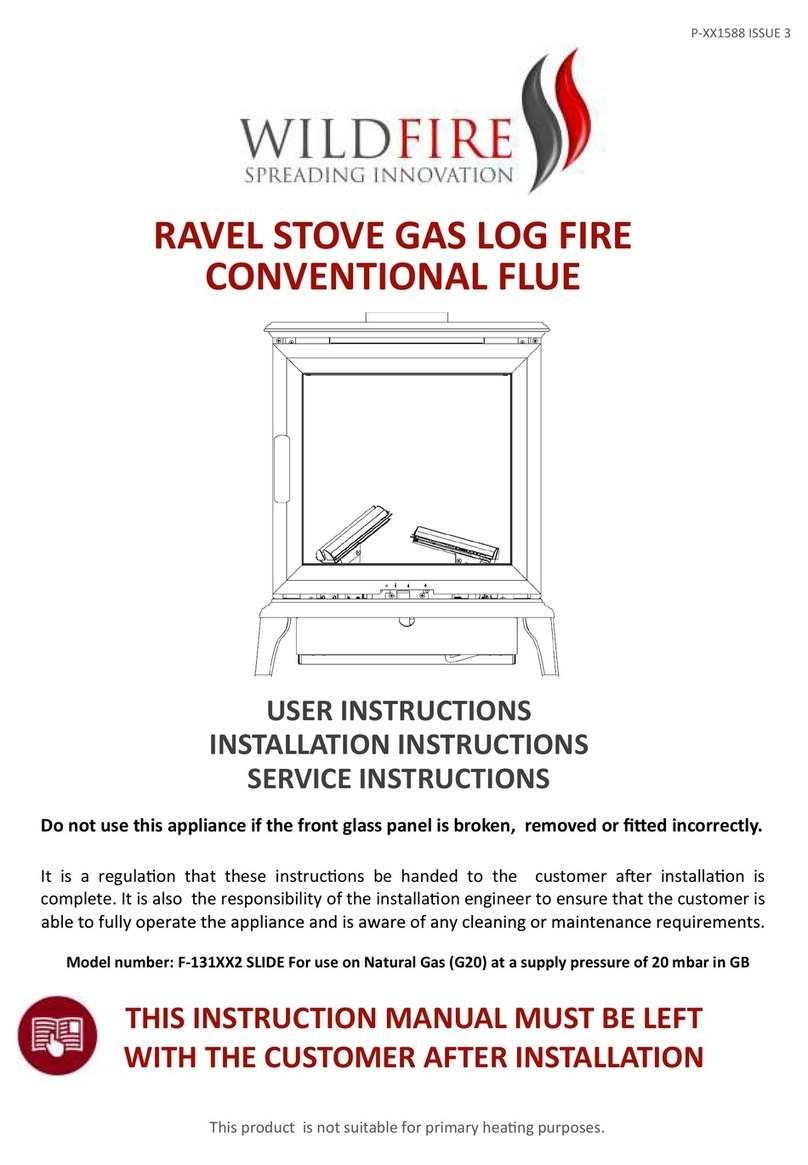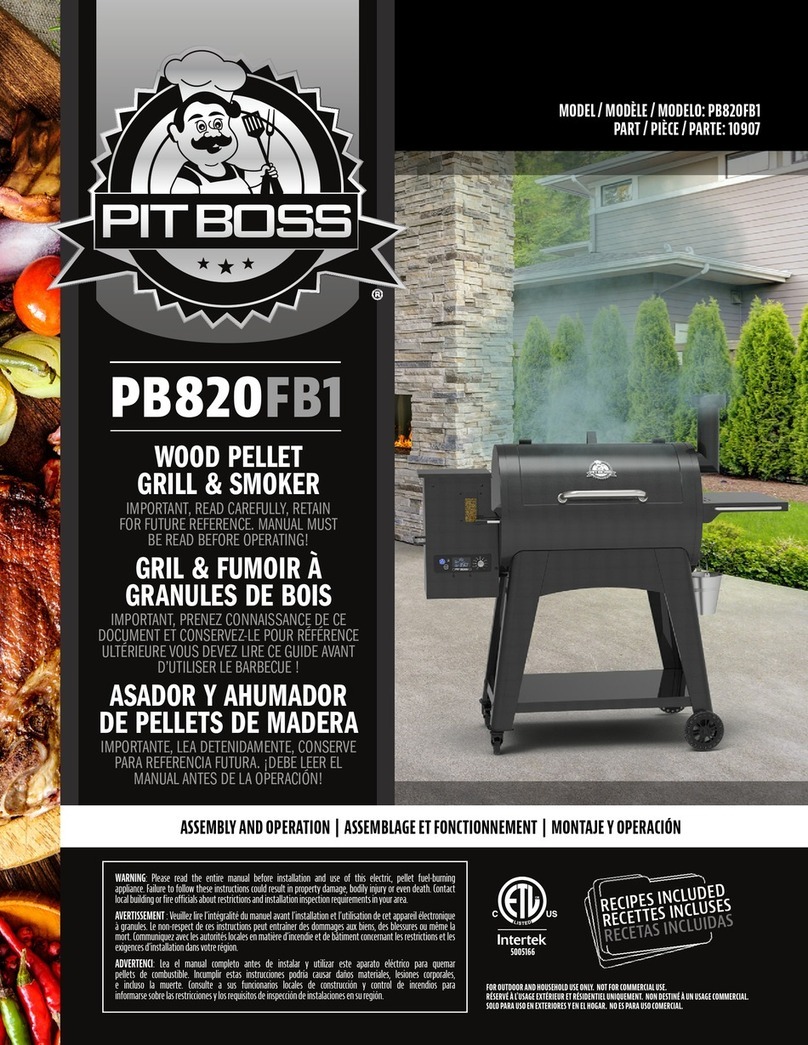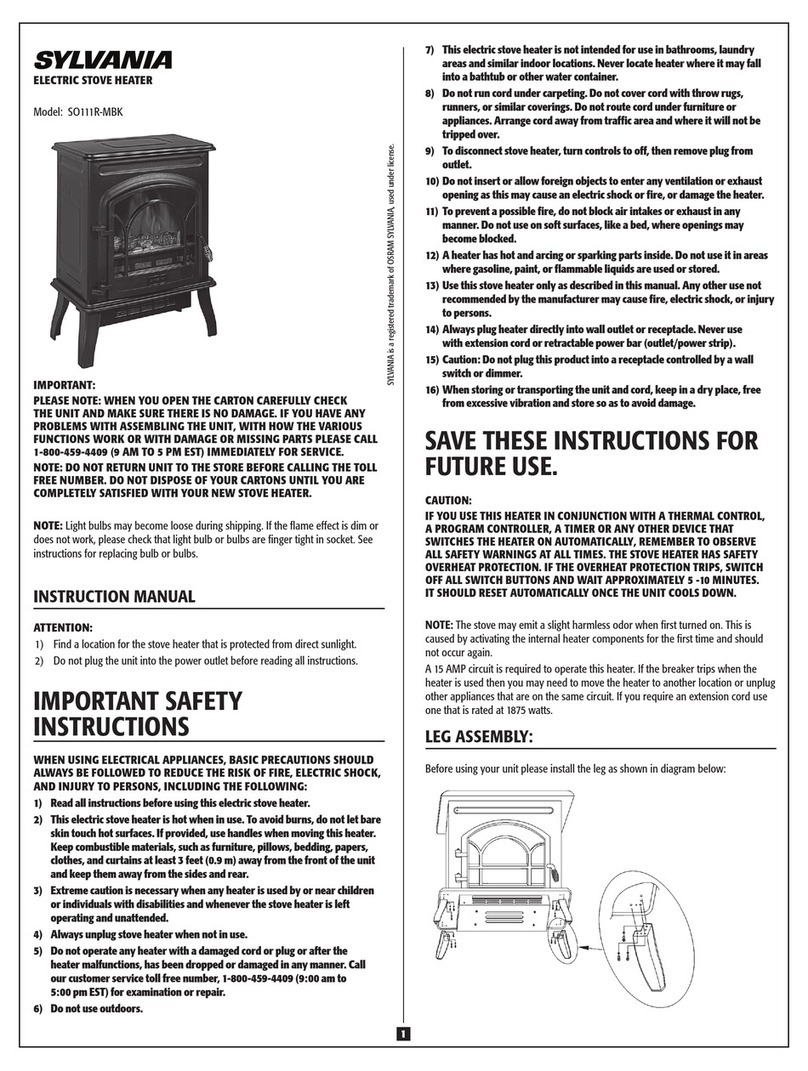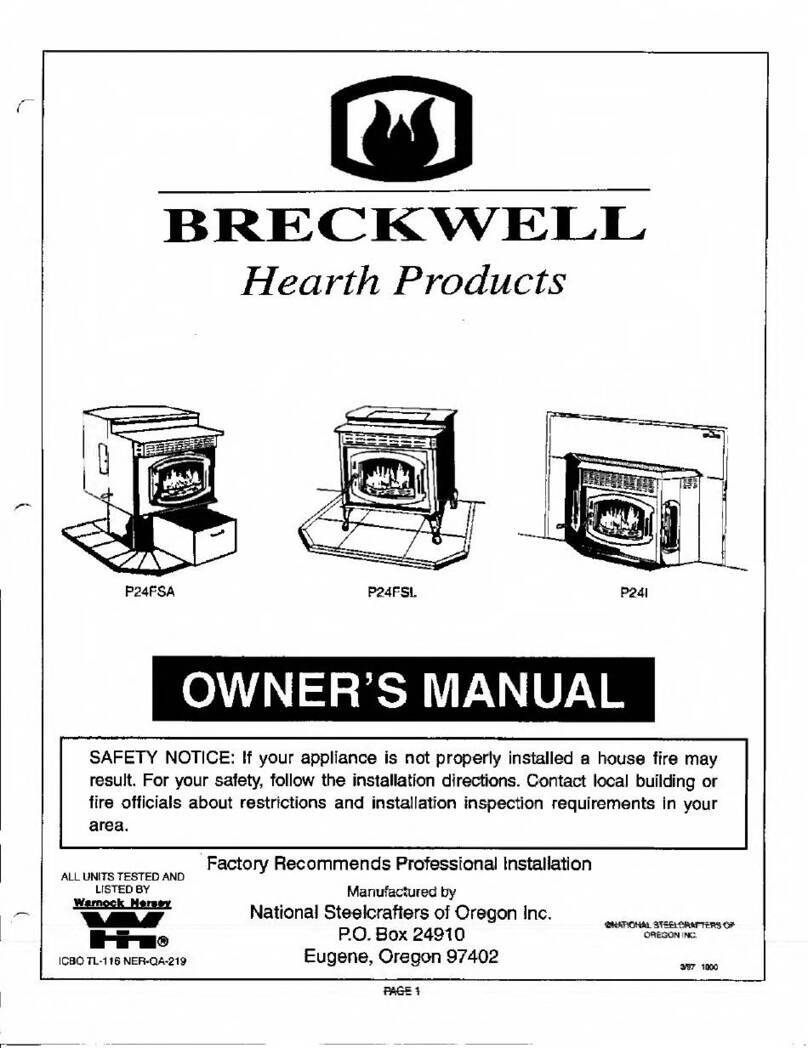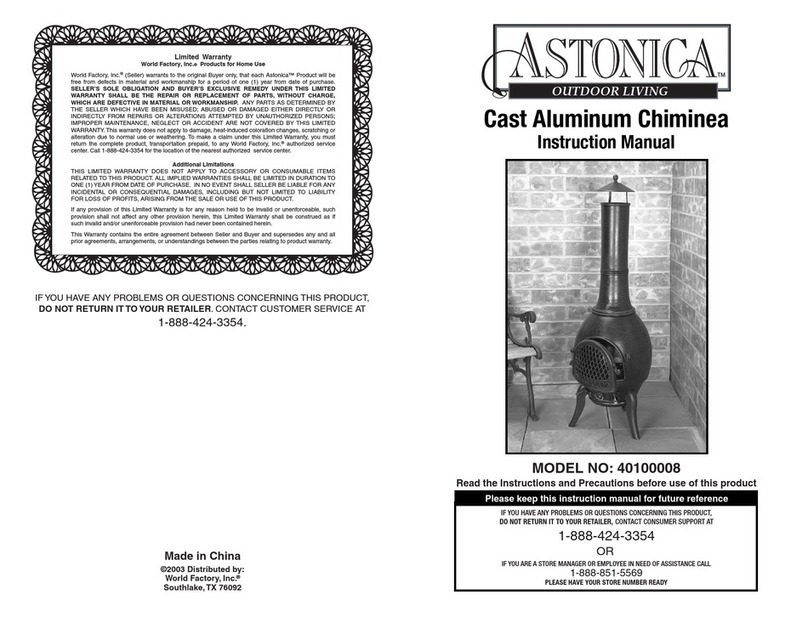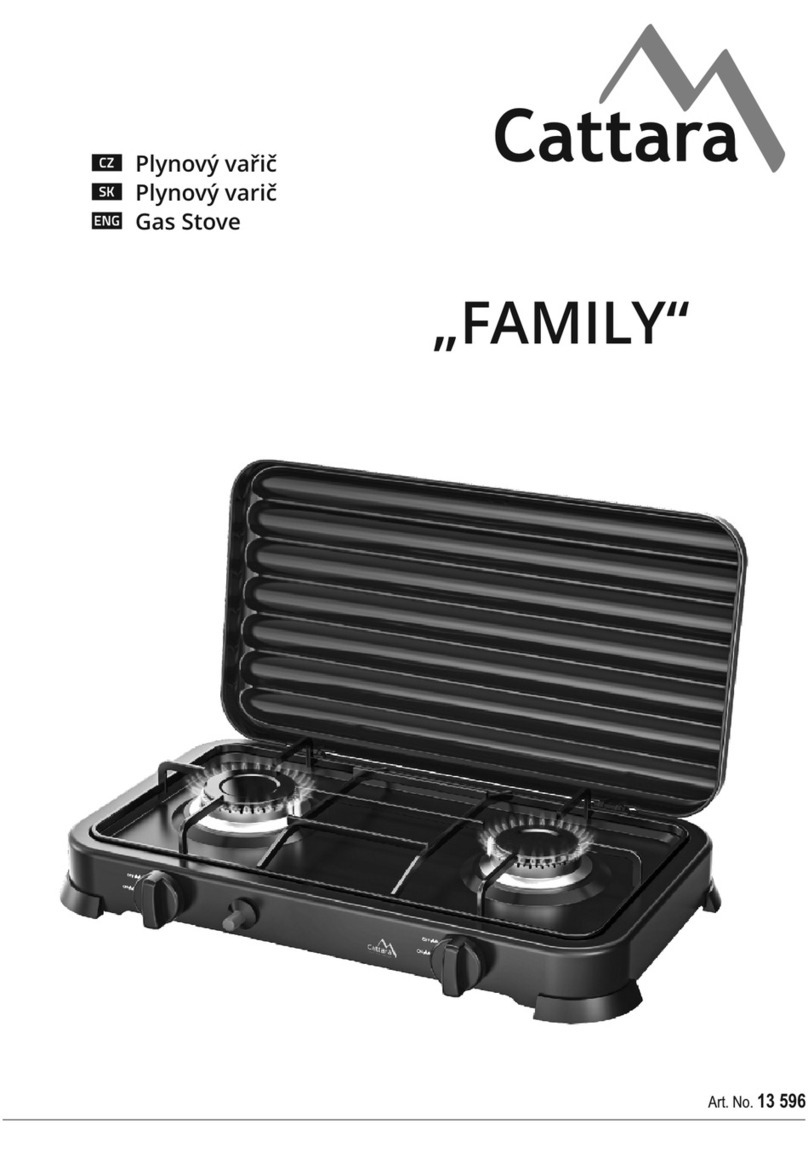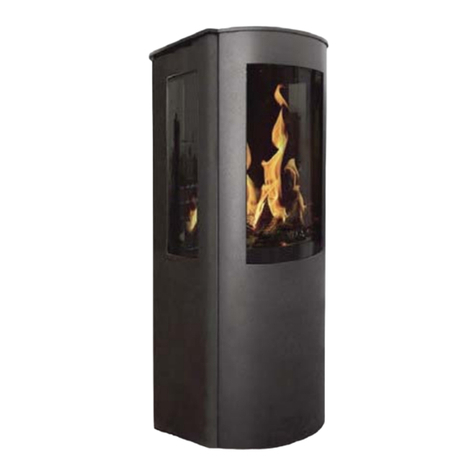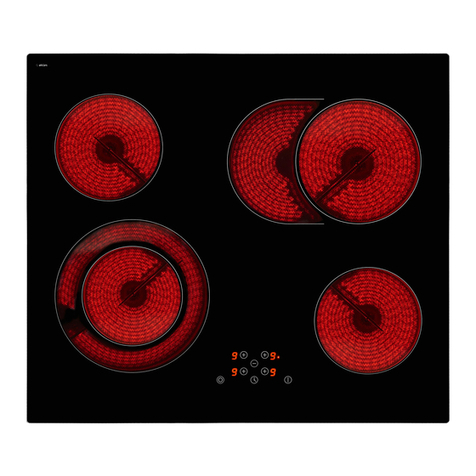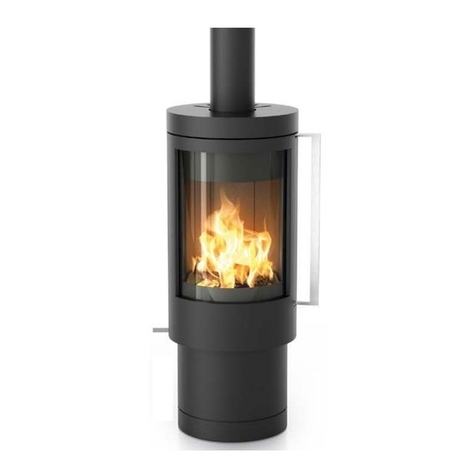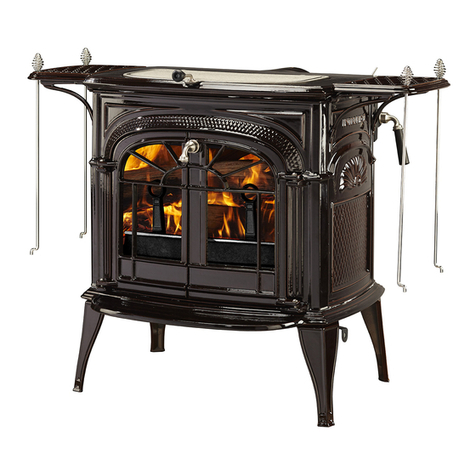2 Installation instructions
2.1 Warning to the user
All the local and national regulations, and in
particular those relating to national and European
standards, must be observed when installing the
appliance.
An incorrectly installed heating appliance can
cause serious accidents (chimney fires, burning of
plastic insulation materials, in partition walls, etc.).The
insulation of both the appliance and the exhaust
gas pipe has to be reinforced and done according to
the Standards and the Building Regulations for safety
reasons. The installation must be carried out according
to the Standards and the Building Regulations.Failure
to respect the manufacturer’s instructions will invalidate
the warranty.
The manufacturer’s responsibility shall be limited to the
supply of the appliance.
2.2 Location of the unit
Ventilation : For satisfactory appliance operation with
a natural draught, check that sufficient air for
combustion is available in the room. In houses
equipped with one “CMV” (controlled mechanical
ventilation), this one aspire and renew the ambient air ;
in this case, the residence is under slight low pressure
and a non-sealable external air intake must be installed
in addition to the chimney itself, at least 50 cm² in
section.
Position of the unit : For new installations, select a
central position within the house, to provide a good heat
distribution around the building. The heat distribution
towards the other rooms will be made through the
communicating doors. These rooms must be at low
pressure or fitted with non-adjustable air registers,
placed so that they cannot be obstructed, to encourage
circulation of the hot air.
Floor and walls : Make sure there are not combustible
or covered with combustible material. Otherwise it must
necessary to install a non-combustible protection.
There must be a
clearance of at
least 150 mm at
each side of the
appliance and at
the back of the
appliance from a
non-combustible
w a l l . T h i s
distance must be
e x t e n d e d t o a
m i n i m u m
c l e a r a n c e o f
400 mm from any
c o m b u s t i b l e
materials. This
m e a s u r e m e n t
may be reduced
t o a m i n i m u m
gap o f 5 0 m m
w h e n t h e
non-combustible
wall is at least 200 mm thick.
There should ideally be a minimum gap of 300 mm at
the right hand side of the stove, this will ensure the best
possible. When using a single wall flue pipe, there must
be a clearance (A) of at least three times its diameter
(B) from any combustible materials. If the appliance has
to be located in an opening, this distance must be
extended to a minimum clearance (A) of 450 mm from
the pipe or the stove body to any combustible materials.
Hearth : The appliance must stand on a fireproof
hearth. It is possible to provide a hearth made of non
combusible board/sheet material or tiles at least 12 mm
thick (C). Constructional hearths should be constructed
of solid non combustible material at least 125 mm thick
(including the thickness of any non combustible floor
under the hearth). The hearth must protrude at least
300 mm in front of the stove and 150 mm each side.
Hearths are provided to prevent combustion appliances
setting fire to the building fabric and furnishings and to
limit the risk of people being accidentally burnt.
Therefore, they should be separated from adjacent
combustible materials and should be satisfactorily
delineated from surrounding floor finishes (carpets
etc...) as follows.
Combustible material should not be placed under a
constructional hearth for a solid fuel appliance within a
vertical distance of 250 mm from the upper surface of
the hearth, unless there is an airspace of at least 50 mm
between the combustible material and the underside of
the hearth.
Where a superimposed hearth has been placed onto a
constructional hearth, combustible material placed on
or besid the constructional hearth should not extend
under the superimposed hearth by more than 25 mm or
closer to the appliance than 150 mm.
E n s u r e t h a t t h e h e a r t h ( s u p e r i m p o s e d o r
constructional) is suitably delineated to discourage
combustible floor finishes from being laid too close to
the appliance, by marking the edges or providing a
change of level.
4 Technical manual “1292”
“MONACO” - Model : 134 08 12 Installation instruction
Figure 2 - Minimum clearances

